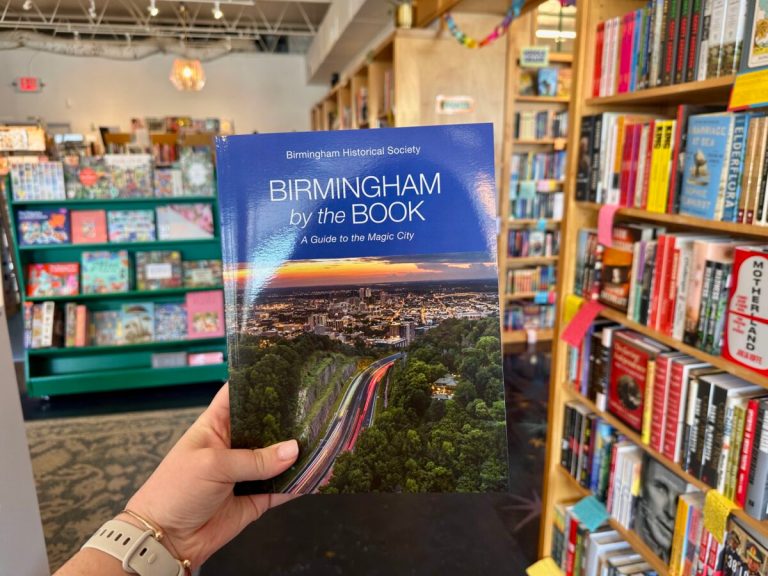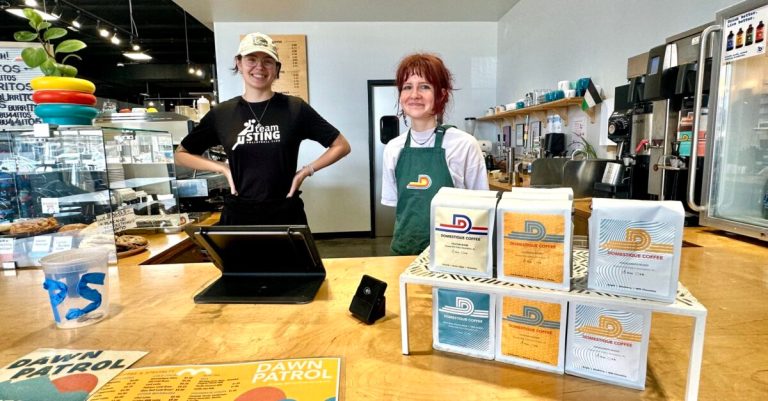Reviewed by: Pat Byington
From one Alabama woman to another: Bringing the Lilly Ledbetter story to life
Reading time: 5 minutes

Lilly Ledbetter is among the Alabamaians who have made a positive impact on the way we think about fairness in the workplace—and beyond.
After she discovered she had experienced pay discrepancy versus her male colleagues at the Goodyear plant in Gadsden, Lilly’s journey for justice took her case all the way to the Supreme Court.
Though her case was overturned and Ledbetter never saw a dime, the Lilly Ledbetter Fair Pay Restoration Act was signed into law in 2009, extending the statute of limitations on claims of fair-pay with each discriminatory paycheck.
While Lilly learned to speak loudly on her own before her passing last fall, it was another Alabama woman who helped amplify that story to the pages of a book—and the soon to be seen on the big screen.
We sat down with writer and Birmingham native Lanier Scott Isom, author of “Grace and Grit: How I Won My Fight at Goodyear and Beyond,” which tells Lilly’s story in first-person and will soon debut as a full-length movie starring Patricia Clarkson.
Learn why you should know more about Lilly and how to see her movie in Birmingham soon.
How did Lilly’s story find you?
![From one Alabama woman to another: Bringing the Lilly Ledbetter story to life 2 Activist Lilly Ledbetter (left) and author Lanier Isom (right) after the publication of "Grit & Grace" [courtesy of Lanier Isom]](https://i0.wp.com/bhamnow.com/wp-content/uploads/2025/04/DSC_0439.jpeg?resize=640%2C428&quality=89&ssl=1)
I think stories do find us, literally. They seek a vehicle to be told. I write about womens’ issues, interesting characters in Alabama, about anything that keeps me up at night. When Lilly’s case started getting a lot of attention in 2009, I tracked down her phone number and just called her. She said she was “up to her knees in alligators” and couldn’t talk.
I got the courage to try again, wrote a magazine profile she really liked and became the Southern writing partner she had been seeking.
What was it like working with Lilly?
![From one Alabama woman to another: Bringing the Lilly Ledbetter story to life 3 Author Lanier Isom (left) and Lilly Ledbetter (right) in Lilly's hometown of Possum Trot, Alabama [courtesy of Lanier Isom]](https://i0.wp.com/bhamnow.com/wp-content/uploads/2025/04/LED_2991.jpeg?resize=640%2C426&quality=89&ssl=1)
Lilly was a member of the Greatest Generation—very stoic, and no patience for our Jerry Springer-tell-all culture. She was very guarded until one day we were walking through the family cemetery down in Possum Trot [Ledbetter’s hometown in Calhoun County in eastern Alabama], and we had a breakthrough. From that point on, she let me in and trusted me with her personal details.
She was very proud of how the book turned out, and she became a friend—family, even. She watched my kids grow up and has been a part of my life ever since.
What was it about Lilly’s story that spoke to you as an Alabama native?
![From one Alabama woman to another: Bringing the Lilly Ledbetter story to life 4 Activist Lilly Ledbetter as a child in Alabama [courtesy of Lanier Isom]](https://i0.wp.com/bhamnow.com/wp-content/uploads/2025/04/lanier06.jpeg?resize=640%2C427&quality=89&ssl=1)
We came from two very different backgrounds, but as a woman growing up in the South—or even as a woman period—we all run the gamut of what that means in this world. Even though I didn’t experience the specific incidents Lilly did, I have experienced enough as a woman to be able to empathize, sympathize and channel that onto the page.
Plus, I understood the complicated, wonderful culture of this state. Its unique characteristics that make it so special—but also its darkest aspects. Unless you’re from Alabama, it’s very hard to understand the nature of this state. It resonated with me when she was first talking about starting at Goodyear in 1979. Those men growing up in north Alabama had no desire for women or black people in their workplace. Things like that she didn’t have to explain. I hoped I could bring some depth and complexity to her story and not have it come across as a stereotypical view of South.
What was your involvement with translating your book into the film LILLY?
Hollywood has more leeway to condense timelines and make specifics from real life a little different, but they do stick to the emotional truth of the matter. It’s taken over a decade to get this film made, and the director [Rachel Feldman] and I have become very good friends. There’s been a groundswell of primarily female producers who have contributed to make sure this movie got made.
Patricia [Clarkson] does a great job being Lilly. What I love about the movie and Lilly’s story, is that Lilly had retired in her early 60s when she started advocating for herself and equal pay. Patricia’s in her 60s and is at the pinnacle of her career; Rachel Feldman [the director] is in her 60s and this is her first feature film; and I was middle-aged when I wrote the book. We are all in later seasons of our life. This group of women shows you how much women later in life still have to contribute, make waves and change the world for the better.
What do you love about living in Birmingham?
I love the trees, the beauty of the area and I would argue there are some of the most interesting, talented individuals here doing extraordinary things all over the city. There are more stories in Birmingham to be told than almost anywhere in the US. Birmingham is a treasure and a gem that most people don’t know about and are pleasantly surprised to discover. It’s a city rich with untold stories.
Learn how to watch LILLY in Birmingham
The movie adaptation, LILLY, is out in theatres starting May 9th. Screen it locally:
- Where: Sidewalk Cinema at the Pizitz
- When: They’ll have several daily showings May 9-16th.
- Learn more: LillyMovie.com



